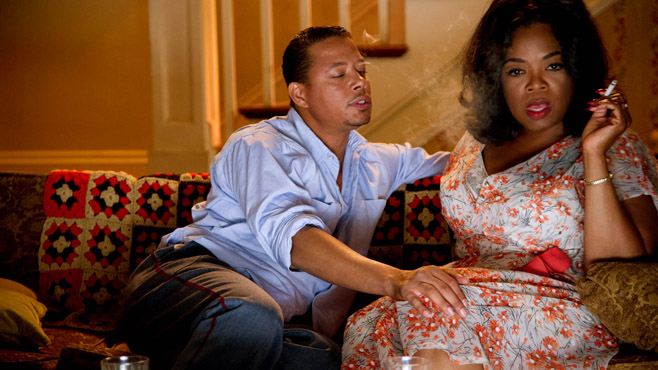From Lee Daniels (Precious; The Paperboy), comes The Butler, a historical drama inspired by the true story of the man who served as butler at the White House, for eight different presidents, during the heights of the civil rights movement in America. There is nothing particularly new or inventive in the film as far as historical biopics go (the Butler narrates his own story, looking back from the present day), but as a story it is both compelling and important, aided by some strong performances.
Forest Whitaker plays Cecil Gaines (in real life, Eugene Allen), who was raised as a house servant in Georgia. After leaving the plantation as a young man, Cecil first finds a job at a pastry shop, then is recommended to a job as a waiter in Washington DC before finally being offered a job as butler at the White House. He serves presidents ranging from Eisenhower, to Reagan, and through Cecil’s eyes, we witness history unfold. Cecil’s perspective is interlaced with that of his son, Louis (David Oyelowo), who takes a much more front-line role in civil rights activism. Oprah Winfrey plays Gloria, Cecil’s wife.
Whitaker carries a quiet dignity with him through the whole of the film and his performance never feels overblown. He is wonderfully subtle, and when bursts of emotion happen it shocks and disarms. Oprah, it is easy to forget, has some serious acting chops. When she is in a good mood, she lights up the screen, but when Oprah depicts her struggling with loneliness and her alcoholism, she is equally heartbreaking. And of course, the dignity of Whitaker’s performance is matched by that of Oyelowo as Louis, Gaines’ son.
Louis’ story runs parallel to that of his father, and their clashing ideologies make for some intriguing contrasts. You don’t side with one or the other, as each person is, in his own way, fighting for the same goal. Cecil is patient, hardworking, and does his job to the best of his abilities, and as a result, every President he serves comes to trust and deeply respect him. Louis’ fight is much more dangerous, as he witnesses first hand the violence and the attacks. The film doesn’t shy away from showing us this (there is one particularly horrifying scene involving the Ku Klux Klan), but I also wished that the film had delved into that side a little more deeply. For example, the scenes involving the Black Panther Party felt glossed over. Not being well versed in American history, I would have appreciated a little more background or exploration of that movement.
The casting of the President’s is at times odd, and at others ideal. John Cusack as Nixon feels strange; on the other hand, I didn’t even recognise at first that Alan Rickman was playing Ronald Reagan. This story is not about the Presidents though and in the end, I don’t think it would matter if they were big names or unknowns. Seeing Robin Williams or James Marsden’s names in the trailers and on the posters may get people buying tickets, but they are side characters; they are emblems of the different administrations, and the political change that took place under those administrations. We get a glimpse at their views and feelings from behind the scenes, or what Cecil perceived. It is alternately life affirming, as we see change for the better take place, and saddening, as it feels like too little too late.
The Butler carries a very hopeful message – things can and will change for the better. Part of me found it too cloying (the overly patriotic score didn’t help much), but the performances see it through. As highly fictionalized as it no doubt is, overall the film serves as a timely reminder for all nations to not simply look outwards for injustice in the world, but within.
